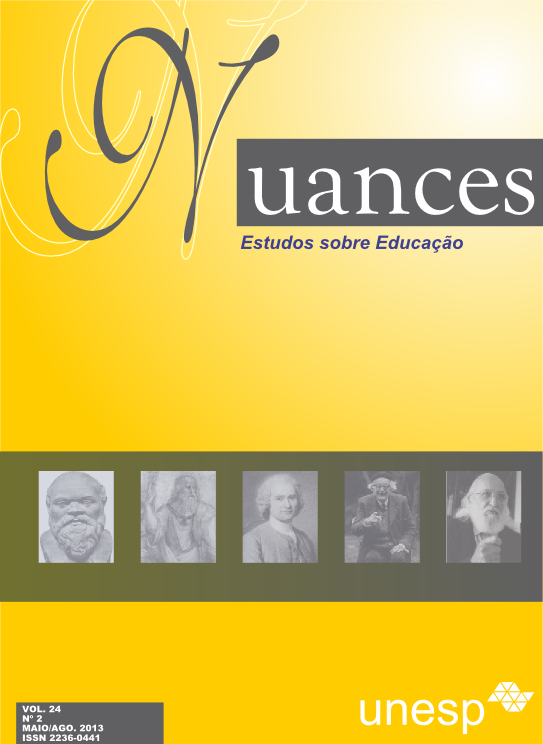A EXCLUSÃO DIGITAL: O REFLEXO DA DESIGUALDADE SOCIAL NO BRASIL
DOI :
https://doi.org/10.14572/nuances.v24i2.2480Mots-clés :
Exclusão e inclusão digital, Desigualdade social, Tecnologias digitais de informação e comunicação, Coeficiente GiniRésumé
A inclusão digital consiste no processo de democratização do acesso às novas tecnologias digitais da informação e da comunicação, possibilitando a todos os cidadãos a se inserirem na sociedade informacional, a sociedade em rede de Castells (1999). No entanto, de acordo com Assumpção e Mori (2006) esta inclusão não significa apenas permiti-los se apropriarem dessa nova tecnologia, mas, sobretudo, melhorar suas condições de vida. Santos (2006) complementa afirmado que a inclusão digital é uma faceta particular das questões de inclusão social. No caso do Brasil que enfrenta vários problemas sociais e apresenta um alto índice de desigualdade, como pode ser observado pelo seu índice Gini, é grande a preocupação com a exclusão digital. Nesta perspectiva, buscou-se nesta pesquisa verificar as ações, que envolvem programas e projetos de inclusão digital que o governo brasileiro tem oferecido e, que promovem também a inclusão social. Para atingir este objetivo, no segundo semestre de 2012, foi realizada uma pesquisa descritiva, bibliográfica e de caráter exploratório. Verificou-se a existência de 22 ações governamentais de inclusão digital que tem contribuído com a inclusão social. Além dessas, outras estão em desenvolvimento, 94 já cadastradas no Observatório Nacional de Inclusão Digital e 108 cadastradas no Ministério da Ciência e Tecnologia. Os resultados revelaram que os projetos e programas de inclusão digital que existem hoje não são suficientes para reduzir a situação perversa da desigualdade social brasileira. E estes precisam ser transformados em políticas públicas consolidadas, como já observado por Spagnolo (2003) que destaca a importância das políticas pública por parte dos governos, principalmente nos países subdesenvolvidos, visando diminuir o fosso existente entre aqueles que têm acesso e os que não possuem acesso aos recursos da sociedade tecnológica.
Téléchargements
Téléchargements
Publiée
Comment citer
Numéro
Rubrique
Licence
Atribuição-NãoComercial
CC BY-NC
Esta licença permite que outros remixem, adaptem e criem a partir do seu trabalho para fins não comerciais, e embora os novos trabalhos tenham de lhe atribuir o devido crédito e não possam ser usados para fins comerciais, os usuários não têm de licenciar esses trabalhos derivados sob os mesmos termos.





